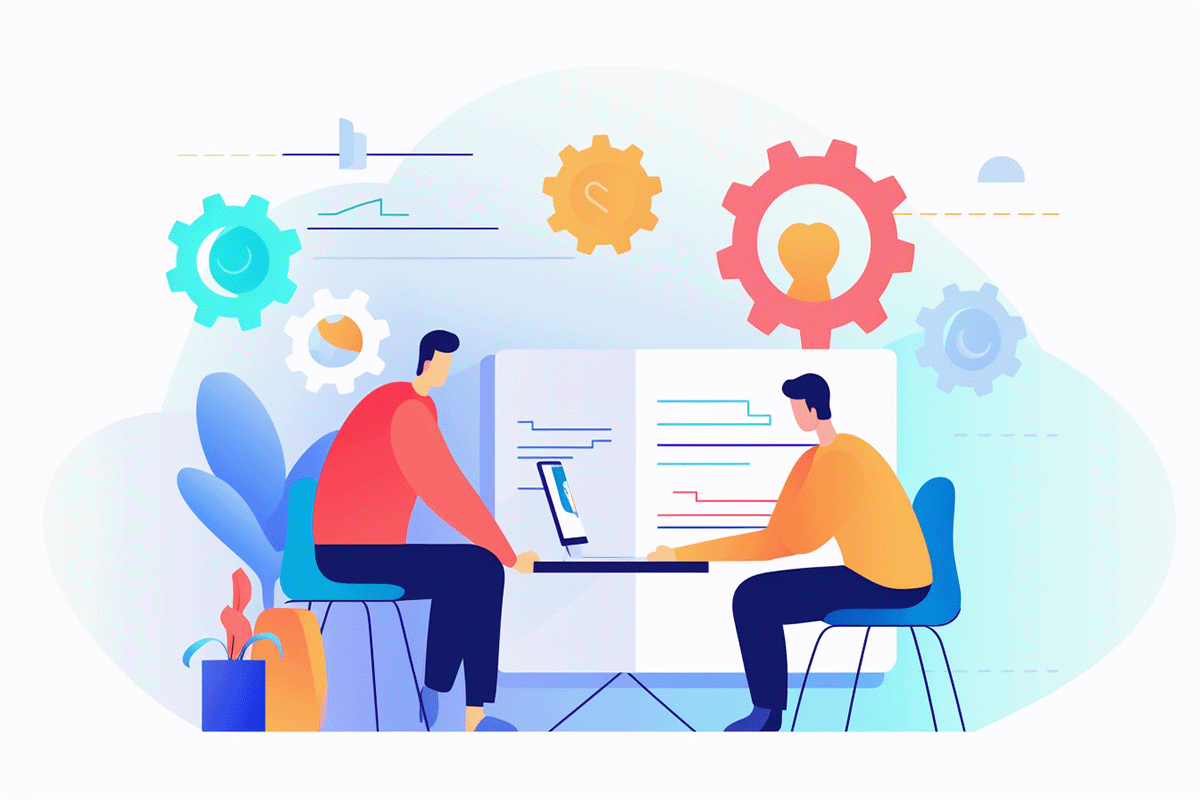Empowering Software Engineers with LLMs
- 8 minutes read - 1645 words
Table of Contents
Bad, sometimes almost unusable technical documentation is not only frustrating and infuriating, but it is also reducing productivity a lot. Some technical documentation was written by people who either had no idea what they were writing about or had any motivation.
LLMs and job replacement anxiety
There are concerns that LLMs like ChatGPT are taking away jobs from Software Engineers, but that is not what is happening. Instead, LLMs like ChatGPT do improve productivity a lot. Reading awful and incomplete documentation is not something you do enjoy. It is very time-consuming.
The time you could spend on more valuable tasks, but instead, you are fighting with the documentation. Budgets and time are constrained, so you cannot deliver all required features quickly. Which in turn means that the delivery of features is postponed or canceled.
This, in turn, means that overall economic productivity is not as good as it could be. Good documentation would not cause an economic miracle but would increase overall tech productivity. Since nearly all economic processes rely on technology, it would mean more growth.
Short-term solutions, Long term problems
Delegating time-consuming tasks like documentation to an AI is not only improving productivity, but it also has the potential to release crucial resources from less productive jobs.
Writing technical documentation is often delegated to junior developers or people with little experience. The reason is that software developer resources are often in short supply and needed elsewhere.
Ironically the most experienced software developers are also the best candidates for writing and reviewing technical documentation because they know the software best.
So instead of developing software, they are writing documentation. Writing documentation is essential, but software development is often time-constrained, so developing constantly gets a much higher priority than other tasks like testing or documentation.
Neglecting the documentation or testing has long-term consequences running the solution; it also might have implications for product-market fit, brand value, and other success criteria.
Mind of an engineer - do not lose focus, and context
Another issue is that engineering (problem-solving) is an entirely different state of mind from writing documentation. It needs significant mental resources to switch from problem-solving to writing documentation. It is like changing vehicles, from a fast motorbike to the silence of a monastery.
You can’t do that easily. Problems caused by mental shifts are often overlooked and ignored, resulting in inefficient and ineffective processes and lousy documentation:
- Different skill sets: Problem-solving often requires analytical thinking, creativity, and working through complex issues. In contrast, writing documentation involves clear communication, organization, and attention to detail. Engineers might excel in one skill set but struggle with the other.
- Cognitive load: Switching between the two tasks can be mentally taxing, as it requires the brain to allocate cognitive resources differently. This can result in decreased productivity and increased mental fatigue.
- Context-switching: Engineers need to shift their focus from the intricacies of the code to the broader perspective required for writing documentation. This context-switching can be challenging and time-consuming.
- Motivation: Engineers might be more motivated to solve problems and develop features than to write documentation. This can lead to procrastination and poor-quality documentation.
LLMs - help keep focus and context
The mental shift between problem-solving and writing documentation can be challenging for many software engineers. This is because the two tasks require different skill sets, cognitive processes, and levels of focus. How LLMs like ChatGPT can help:
- Reducing the cognitive load: LLMs can assist in writing documentation, reducing the cognitive load on software engineers and allowing them to focus on problem-solving.
- Bridging the skill gap: LLMs can provide clear and concise documentation, compensating for the differences in skill sets between problem-solving and documentation writing.
- Minimizing context-switching: By generating documentation as engineers work on their code, LLMs can reduce the need for context-switching, allowing engineers to maintain their focus and mental momentum.
- Enhancing motivation: Knowing that an LLM can help with documentation can alleviate the pressure on engineers, increasing their motivation to focus on what they do best - problem-solving and feature development.
LLMs like ChatGPT can enable software engineers to devote more of their mental resources to problem-solving and innovation by assisting with documentation. This collaboration can improve productivity, higher-quality products, and more efficient use of engineering talent.
The role of LLMs like ChatGPT in improving technical documentation and productivity
LLMs like ChatGPT can significantly improve technical documentation and, as a result, overall productivity in the technology, financial, and industrial sectors.
By providing clear, concise, and accurate documentation, these language models can help software engineers and developers save time and effort that would otherwise be spent on deciphering poorly written or incomplete documentation. Here are some ways LLMs can contribute to better technical documentation and productivity:
- Writing clear and concise documentation: LLMs like ChatGPT can help generate well-structured, clear, and easy-to-understand documentation that addresses the users’ needs. This can make it easier for software engineers to find the necessary information and reduce the time spent understanding the documentation.
- Ensuring accuracy and consistency: LLMs can be trained to understand technical concepts and ensure the information provided in the documentation is accurate and up-to-date. This can help avoid confusion and prevent developers from making mistakes due to outdated or incorrect information.
- Filling knowledge gaps: LLMs can help identify areas where documentation may be lacking and generate content to fill those gaps. This can save developers time and effort searching for information from other sources.
- Personalized learning experience: LLMs can adapt the documentation to the individual needs of the users, taking into account their level of expertise and preferred learning styles. This can make the learning process more efficient and enjoyable for software engineers.
- Real-time support and collaboration: LLMs can be integrated into various communication and collaboration platforms to provide real-time support and assistance to software engineers as they work on their projects. This can help reduce the time spent on troubleshooting and problem-solving.
By improving the quality of technical documentation, LLMs like ChatGPT can enable software engineers to focus on more valuable tasks, such as developing new features and products. This, in turn, can contribute to the overall growth of the technology sector and the economy.
It is important to note that LLMs are not meant to replace software engineers but to augment their capabilities and improve their productivity. By working together, LLMs and software engineers can create a more efficient and productive work environment, driving technological advancements and economic growth.
How LLMs can support the software process in other ways
LLMs like ChatGPT can also play a crucial role in supporting other aspects of the software development process. Here are some ways in which LLMs can help:
Supporting and educating junior developers
- Guided learning: LLMs can provide personalized learning experiences for junior developers by tailoring explanations and examples based on their background and skill level. This can help them better understand complex concepts and improve their coding skills.
- Code reviews: LLMs can assist in code reviews, pointing out potential issues and suggesting improvements in code quality, structure, and adherence to best practices. This can help junior developers learn from their mistakes and enhance their coding skills.
- Mentorship: LLMs can serve as virtual mentors, answering questions and providing guidance on a wide range of topics related to software development. This can help junior developers grow professionally and gain confidence in their abilities.
- Real-time assistance: LLMs can be integrated into development environments and communication platforms to provide real-time service to junior developers working on their projects. This can help them overcome obstacles, debug code, and find solutions more efficiently.
Maintaining a working knowledge base
- Centralized information repository: LLMs can help create and maintain a centralized knowledge base that stores relevant information, best practices, and solutions to common problems. This can improve the efficiency and effectiveness of the software development process by making it easier for developers to access the information they need.
- Automatic updates: LLMs can monitor changes in technologies, frameworks, and best practices, ensuring the knowledge base is always up-to-date. This can save time and effort for developers who would otherwise need to research and manually update the information.
- Knowledge discovery: LLMs can analyze the knowledge base and identify information gaps, suggesting areas where additional content may be needed. This can help ensure that the knowledge base remains comprehensive and valuable.
- Efficient search and retrieval: LLMs can help developers quickly and easily find relevant information within the knowledge base by understanding their queries and providing accurate and context-appropriate responses. This can save time and effort spent searching for information and improve productivity.
LLMs like ChatGPT can contribute to a more efficient and productive software development process by supporting junior developers and maintaining a practical working knowledge base. They can help developers learn and grow professionally, streamline access to critical information, and foster a collaborative and knowledge-driven work environment.
Conclusions
LLMs can support software engineers across multiple sectors to become more productive while keeping or even increasing quality. Even if software documentation looks less exciting than fancy new products, running and maintaining software consumes more budget than building it. Given the economic importance of technology, „boring“ documentation might represent a strategic asset.
LLMs like ChatGPT can revolutionize technical documentation and boost productivity in tech industries. LLMs save engineers time by providing high-quality documentation, enabling them to focus on innovation.
LLMs also support software development by educating junior developers, assisting in code reviews, and maintaining an up-to-date knowledge base.
Instead of replacing engineers, LLMs augment their capabilities, driving technological advancements and economic growth. The future of software development lies in integrating AI-powered language models and human expertise for enhanced efficiency and productivity.


